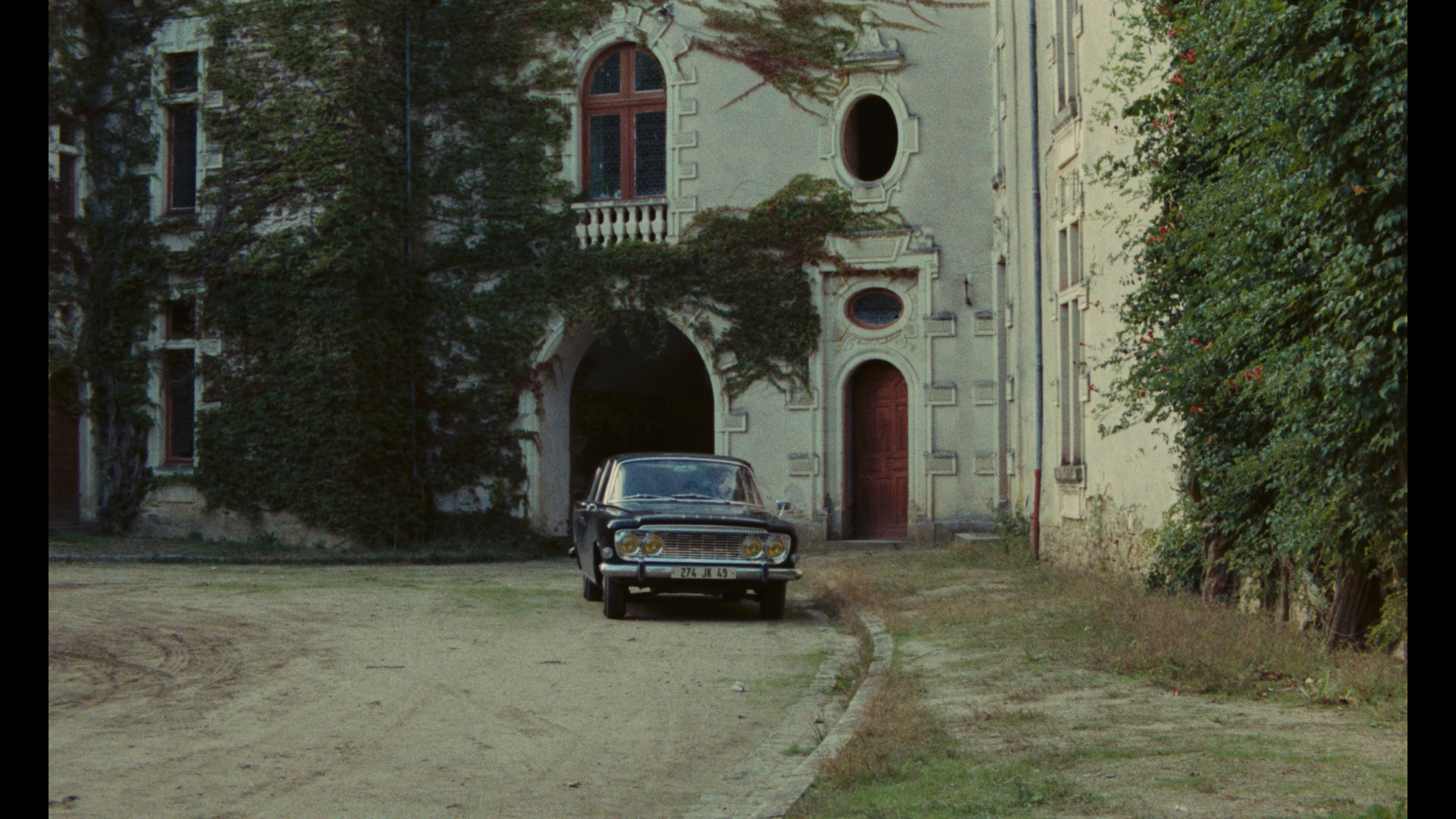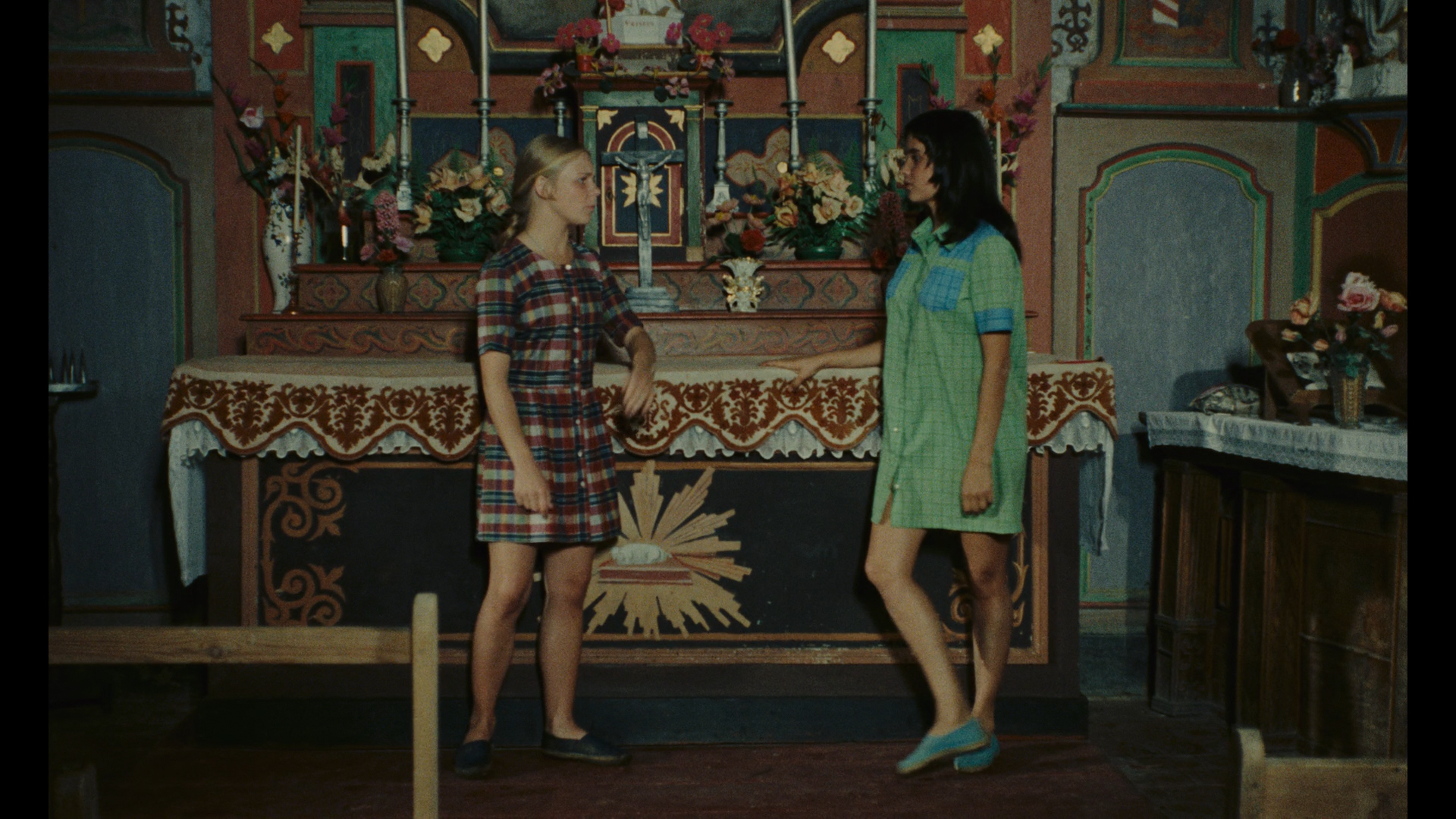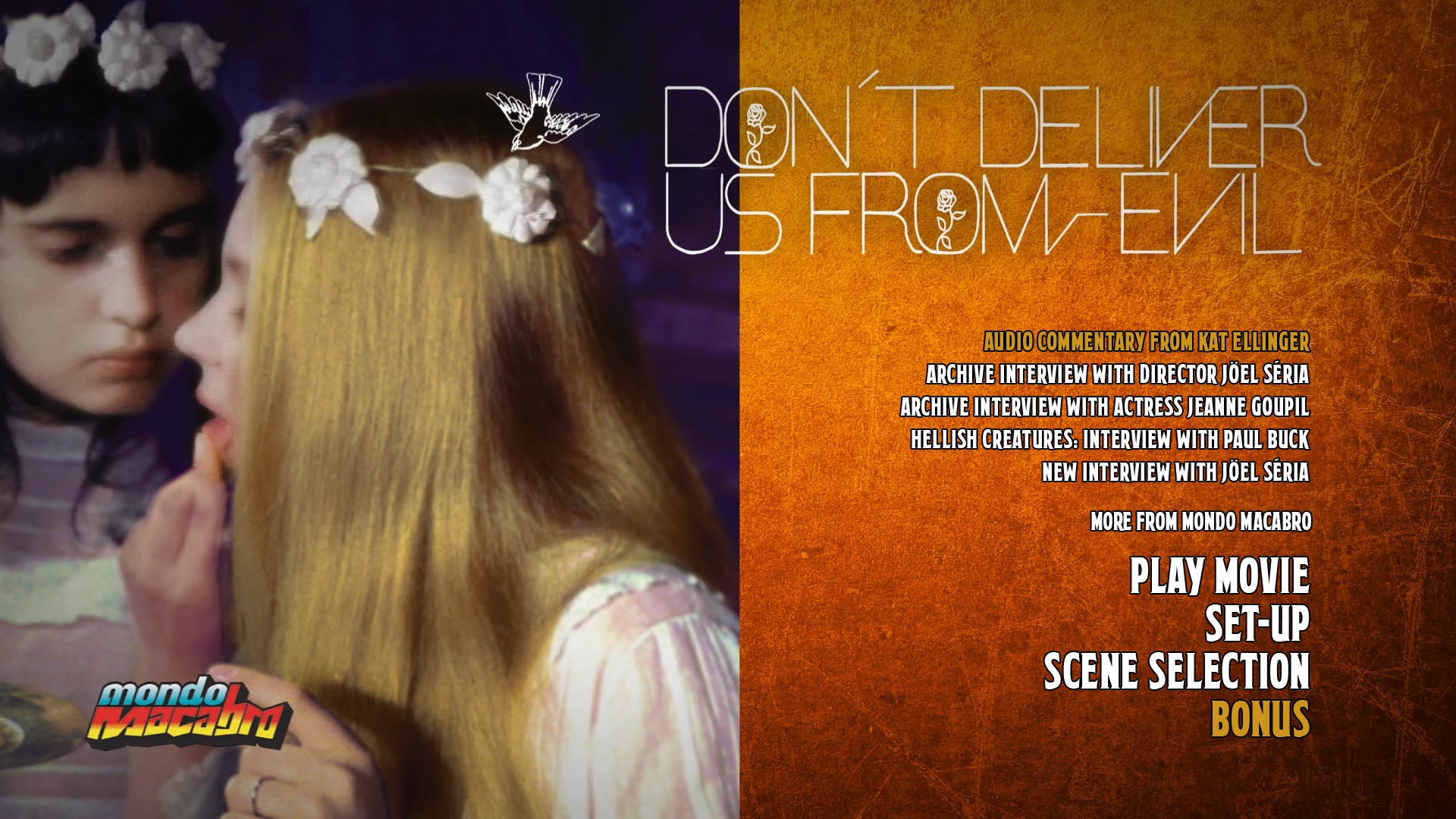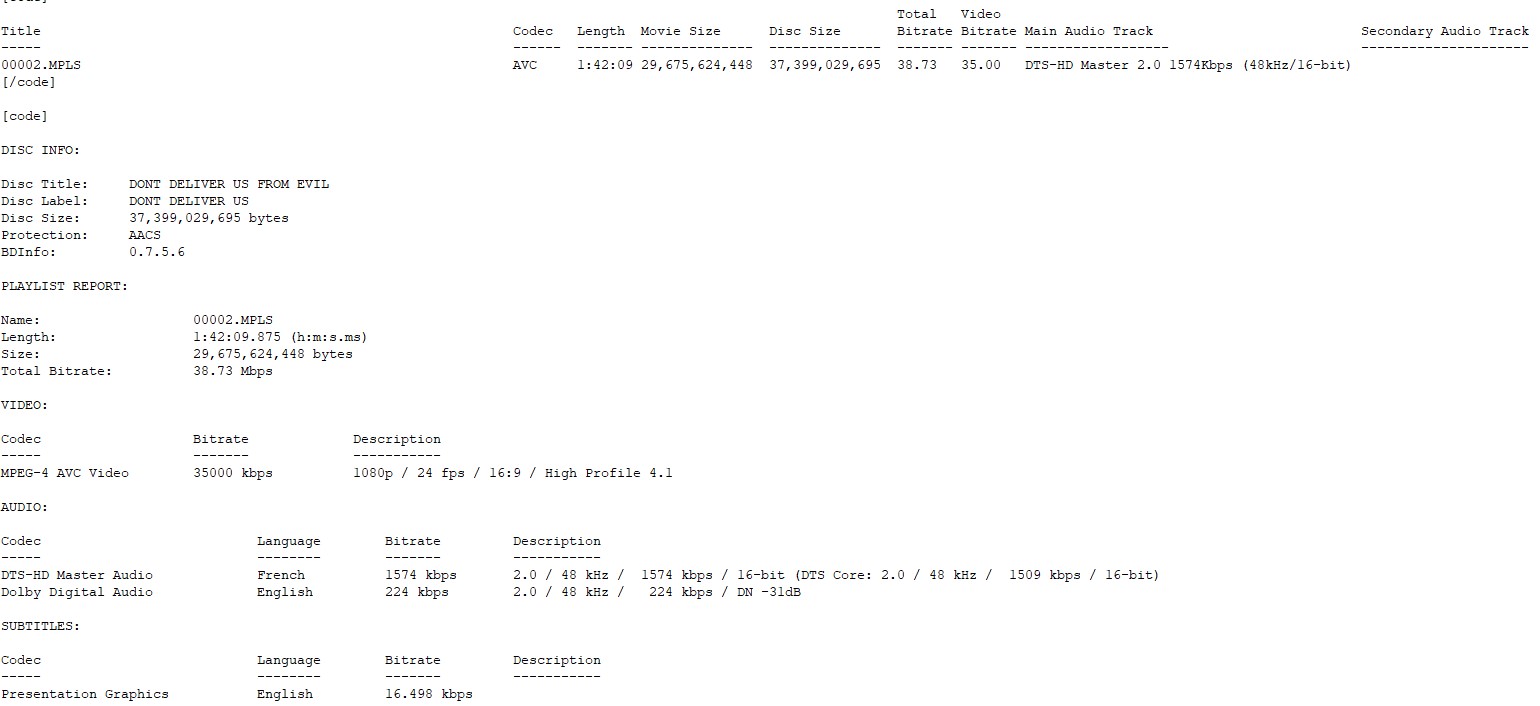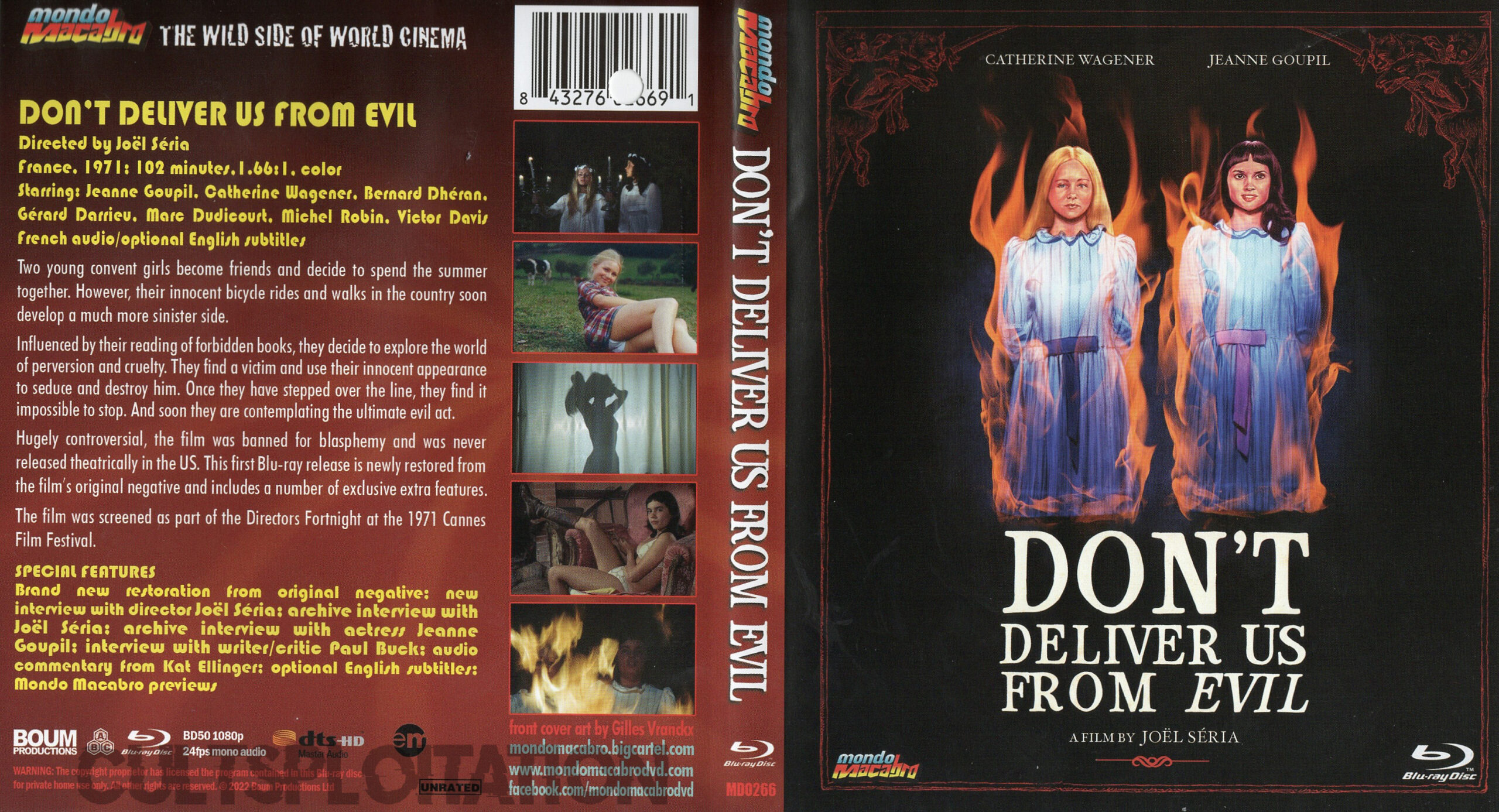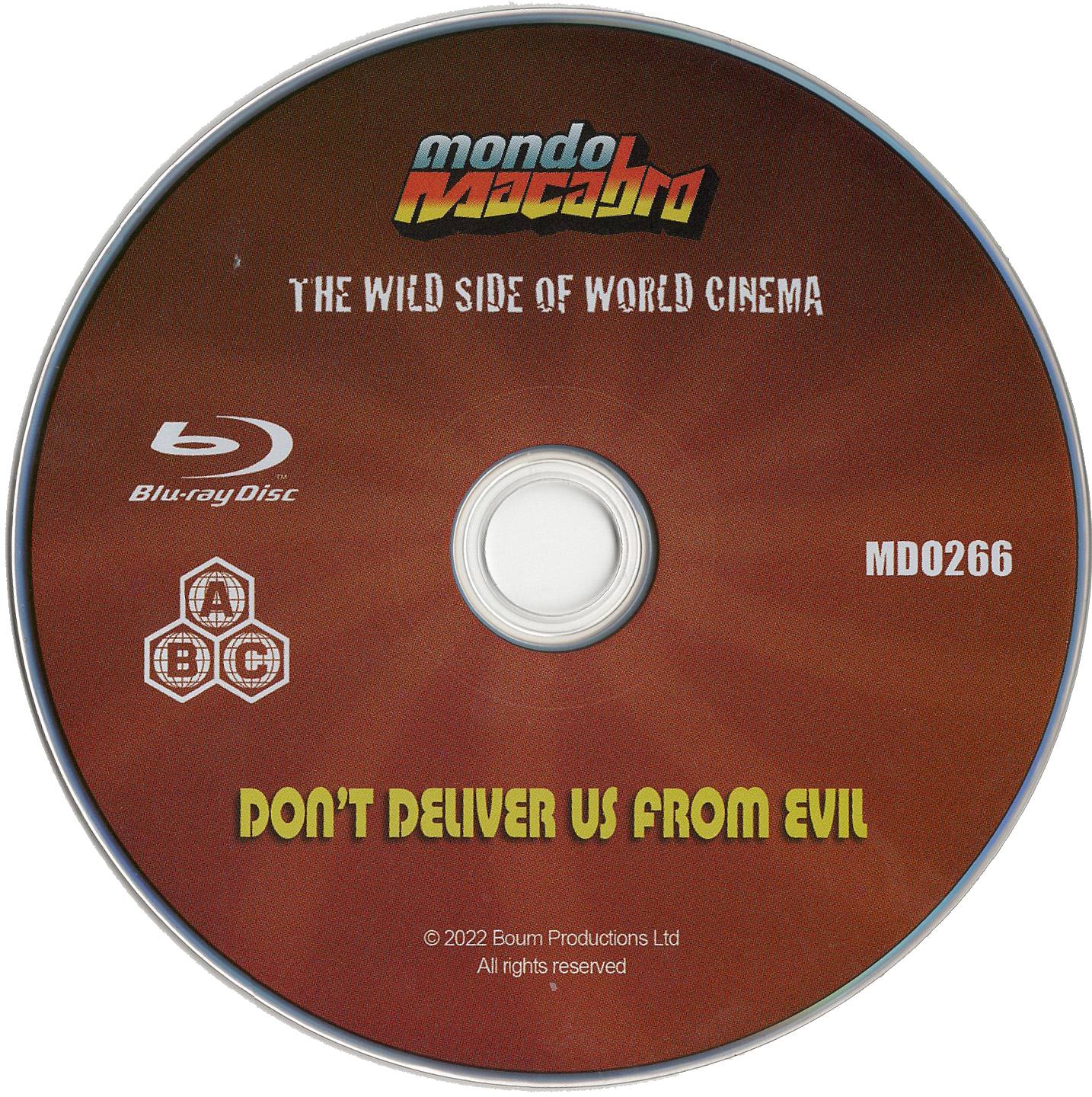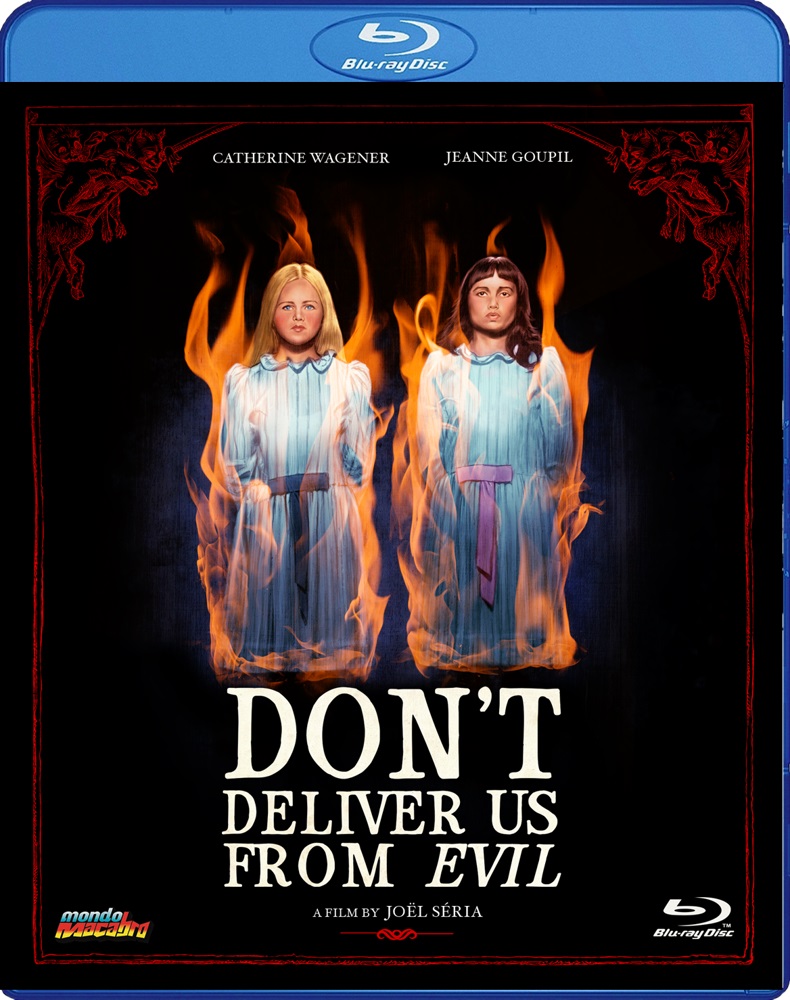
Joël Séria’s directorial debut is loosely based on the true-crime case of the Parker-Hulme murder, in which two teenage girls murder one of the girls’ mother; this was eventually adapted into Peter Jackson’s Heavenly Creatures, but before that was Don’t Deliver Us From Evil. Séria makes a lot of changes to the real-life events, using it as a jumping-off point before diving into heavy themes about anti-Christianity and young female sexuality; in truth, he uses more of his own experiences with devout religious worship than the murder case itself. But these nuances help to craft the movie into a disturbing – sometimes purifying – look at a specific time period in French history that pushes boundaries, so much so that the film was banned in France for its content.
Don’t Deliver Us From Evil follows Anne (Jeanne Goupil in her first role), a 16-year old girl living in the French countryside with a rich family that is heavily embroiled in Christianity. She’s extremely close with her friend Lore (Catherine Wagener), a more timid girl who is highly influenced by Anne’s advanced experiences reading erotic literature and exploration of Satanism. Eventually, the two decide to renounce their Christianity in favor of Satanism, performing a ritual that mirrors and blasphemes Christian communion. Along with that, they begin to explore the allure of their sexuality and terrorize some of their neighbors.
Séria’s direction is slow, at times ploddingly so. He uses extremely drawn-out sequences that push the boundary between “just enough” and “too long,” and ultimately that will probably be the deciding factor in whether audiences will actually enjoy the film. However, his languishing script does an excellent job of characterizing the two girls, their friendship, and ultimately the influence that Anne has in the relationship; it presents some reprehensible acts performed by the two girls, but also attempts to understand their motivations by offering the audience a view into their overly structured lifestyle. Forced into a Catholic boarding school, they are repeatedly told that everything interesting to a budding pubescent girl is sinful, and ultimately their renunciation of their faith is the act of breaking free of that repression.
While a lot of Don’t Deliver Us From Evil is focused on the coming-of-age story of the two girls (and in fact plays out very similarly to Luca Guadagnino’s later gay exploration opus Call Me By Your Name), the film’s finale is quite breathtaking in its construction and outcome. While some may find it as the ultimate befoulment of two young women (as the French critics most certainly did with their ban), there is a sense of freedom in the self-immolation performed at the end of the film. The two will never be apart, and they won’t be pulled away from each other by forced Catholic ideals. It’s a startling conclusion, simultaneously bleak and beautiful, and well worth the wait.
Don’t Deliver Us From Evil may not appeal to everyone, and it certainly isn’t a horror film in the explicit sense; but it is horrific in other manners, mostly the way religion attempts to confine and repress human expression. The film’s multiple attempted rape scenes and its intentionally young-looking protagonists (they were of age) are shocking, but ultimately as a whole Séria delivers a satisfying message about breaking free from the shackles of religion.
Blu-ray
Mondo Macabro previously released Don’t Deliver Us From Evil on DVD and now they have done a new 2K restoration of the film from the original camera negative in its correct aspect ratio of 1.66:1. The film features a medium-heavy grain scale that is more apparent in darker scenes, but overall there is a great amount of detail on display here, especially with the many wallpaper backgrounds in Anne’s house and some beautiful floral costume design. As noted, darker sequences lose some detail but never feature crushed blacks. There is some damage to the negative but nothing too noticeable. The film hues more towards a warm yellow, but the color grading presents some excellent verdant greens in the French countryside and again showcases the scenic backdrops. Overall, this is a very effective transfer that is surely an improvement on past releases.
This disc features a DTS-HD Master Audio 2.o mono French track with optional English subtitles that are enabled by default. The mono track sounds quite good with strong dialogue and soundtrack volume, with no dips or audio distortion. A subtle hiss is audible but never obstructive.
Extras include an excellent new audio commentary with Kat Ellinger, who provides effectively a movie-length essay on the facets of Don’t Deliver Us From Evil‘s religious motifs, its look at young adult sexuality and the duality of virgin/whore that women face, and many other elements of the movie. A new interview with Joël Séria discusses his previous works and Don’t Deliver Us From Evil‘s inspirations; there’s also a shorter archival interview with him that touches on much of the same material, but with less detail. There are also archival interviews from actress Jeanne Goupil (the same session with Séria, since they are married) and British crime writer Paul Buck about the true-crime case behind the events of the film.
Extra Features
- Region free US Blu-ray premiere
- French language track with optional English subs
- NEW 2k restoration from the film negative
- NEW interview with director Joël Séria (1080p; 21:57)
- Archival interview with Joël Séria (480i; 15:23)
- Archival interview with actress Jeanne Goupil (480i; 11:48)
- Archival interview with writer/critic Paul Buck (480i; 12:03)
- NEW audio commentary by film scholar Kat Ellinger
Verdict
Don’t Deliver Us From Evil is a slow burn (literally) but one that features a compelling narrative about coming of age in religious restrictions. This Blu-ray from Mondo Macabro is especially good with a great transfer and excellent extra features.


